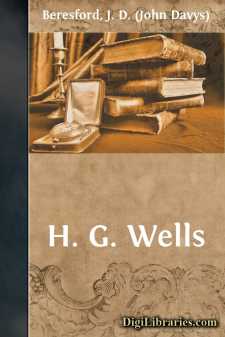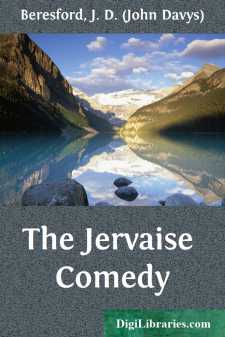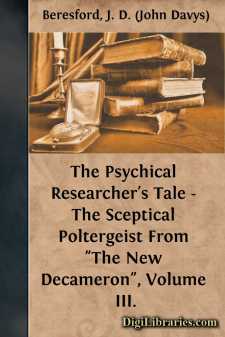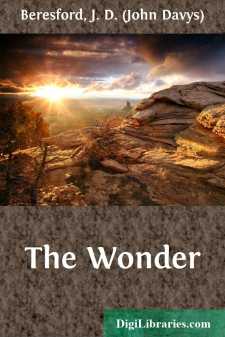Categories
- Antiques & Collectibles 13
- Architecture 36
- Art 48
- Bibles 22
- Biography & Autobiography 813
- Body, Mind & Spirit 142
- Business & Economics 28
- Children's Books 16
- Children's Fiction 13
- Computers 4
- Cooking 94
- Crafts & Hobbies 4
- Drama 346
- Education 46
- Family & Relationships 57
- Fiction 11829
- Games 19
- Gardening 17
- Health & Fitness 34
- History 1377
- House & Home 1
- Humor 147
- Juvenile Fiction 1873
- Juvenile Nonfiction 202
- Language Arts & Disciplines 88
- Law 16
- Literary Collections 686
- Literary Criticism 179
- Mathematics 13
- Medical 41
- Music 40
- Nature 179
- Non-Classifiable 1768
- Performing Arts 7
- Periodicals 1453
- Philosophy 64
- Photography 2
- Poetry 896
- Political Science 203
- Psychology 42
- Reference 154
- Religion 513
- Science 126
- Self-Help 84
- Social Science 81
- Sports & Recreation 34
- Study Aids 3
- Technology & Engineering 59
- Transportation 23
- Travel 463
- True Crime 29
J. D. (John Davys) Beresford
John Davys Beresford (1873–1947) was an English novelist and short story writer, primarily known for his science fiction and horror works. His most notable novel, "The Hampdenshire Wonder" (1911), is one of the earliest examples of British science fiction, focusing on a super-intelligent child. Beresford often explored themes like the impact of evolution and societal changes in his writing. He also wrote "Goslings" (1913), a dystopian novel about a plague that kills all men, leaving women to rebuild society.
Author's Books:
Sort by:
INTRODUCTION THE NORMALITY OF MR WELLS In his Preface to the Unpleasant Plays, Mr Shaw boasts his possession of "normal sight." The adjective is the oculist's, and the application of it is Mr Shaw's, but while the phrase is misleading until it is explained to suit a particular purpose, it has a pleasing adaptability, and I can find none better as a key to the works of Mr H.G. Wells....
more...
The First Hour When I was actually experiencing the thrill, it came delightfully, however, blended with a threat that proclaimed the imminent consequence of dismay. I appreciated the coming of the thrill, as a rare and unexpected “dramatic moment.” I savoured and enjoyed it as a real adventure suddenly presented in the midst of the common business of life. I imaginatively transplanted the scene...
more...
There was once a time (he began) when I decided that I was a fraud; that I could not be a psychical researcher any longer. I determined to give it all up, to investigate no more phenomena nor attend another séance, nor read a word about psychical research for the remainder of my life. On the contrary, I planned an intensive study of the works of the later Victorians, of that blissful period in the...
more...
I I could not say at which station the woman and her baby entered the train. Since we had left London, I had been struggling with Baillie's translation of Hegel's "Phenomenology." It was not a book to read among such distracting circumstances as those of a railway journey, but I was eagerly planning a little dissertation of my own at that time, and my work as a journalist gave me...
more...





